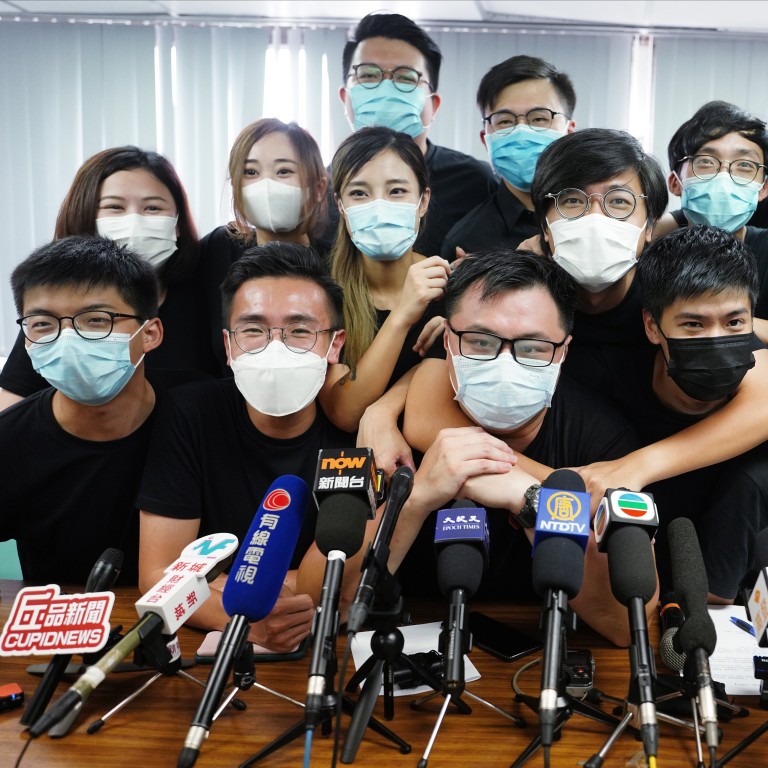
Why Hong Kong’s firebrand localists have exploded onto the political scene and will they stay united with moderate opposition?
- The so-called resistance bloc is mainly composed of activists in last year’s anti-government protests and student leaders of the 2014 Occupy movement
- Localists have gained the upper hand in the opposition camp in recent years rather than being sidelined following government disqualifications
A mass disqualification of prominent figures in Hong Kong’s opposition on Thursday was a stunning blow to the camp but now the threat of fragmentation could also lie ahead, insiders warned.
Those banned were not just localists known for their confrontational politics, but also three incumbent legislators from the Civic Party and Kenneth Leung from the accountancy sector, long regarded as moderates even if they were seen as more vocal in recent months.
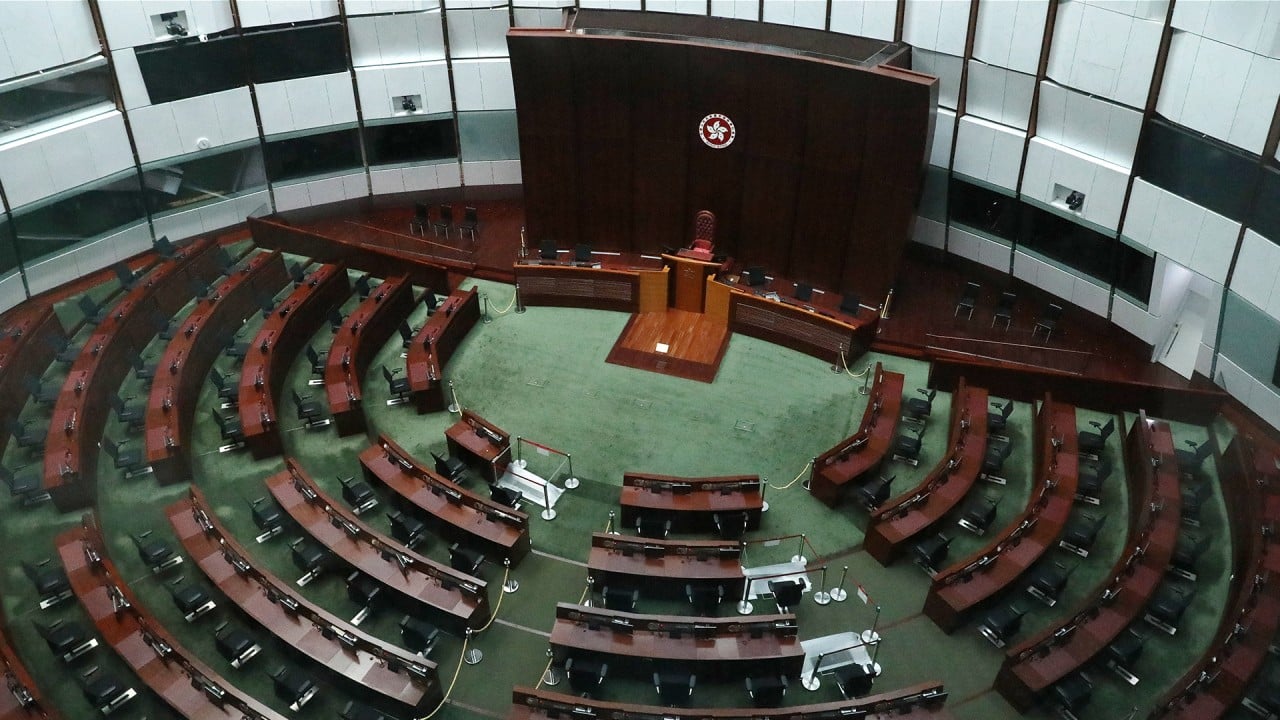
03:39
Hong Kong Legislative Council elections postponed by a year
Stunned but claiming to be unbowed, activists across the democratic spectrum vowed they would continue their battle, with some sending in second-rung candidates before nominations closed on Friday, with others waiting to see how long the elections could be postponed and planning how to regroup.
But that victory had also led to internal tensions between the localists and the traditional democrats.
In the lead-up to the Legco polls, the former, who called themselves the “resistance bloc”, had co-organised a primary to weed out weaker candidates in the camp as part of the bid to win 35-plus seats in the 70-member Legco. Many had been persuaded by the localists to sign a joint declaration, pledging that they would block the government budget if they secured a majority in Legco.
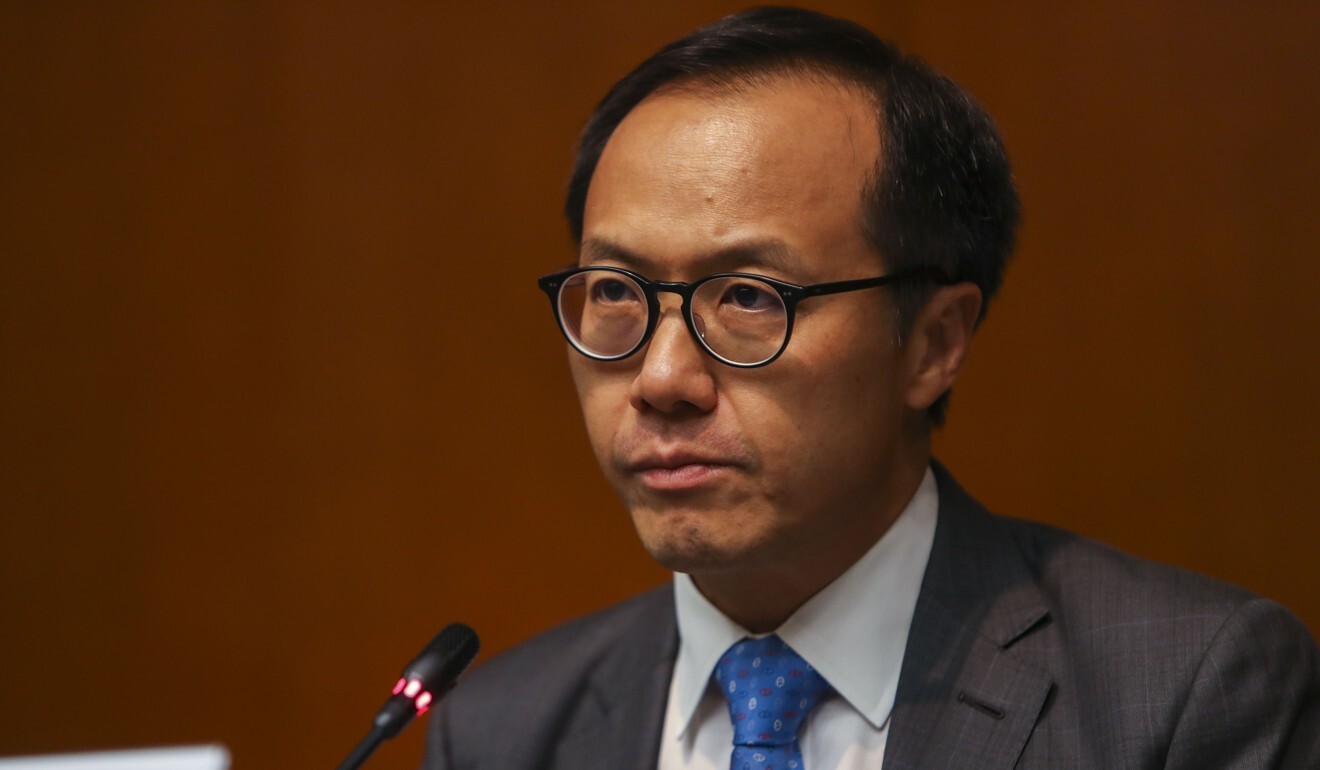
Ironically, the declaration – which the moderate Democratic Party did not sign – was cited by returning officers in making the bans on hopefuls, saying it was “an abuse of the constitutional role and functions of Legco”.
But Civic Party leader Alvin Yeung Ngok-kiu, who was banned, said the party had no plans to distance itself from localists and would continue to explore new ways to work with them and others with similar democratic values.
Hong Kong police said to seek Nathan Law and 5 others on security charges
“The Civic Party will be eliminated only if Hongkongers vote all of us out. But Beijing’s suppression will only make us stronger and more resilient,” he said. “We’ve earned trust and a mandate in the primary election.”
The rise of the localists
In the opposition’s primary held earlier this month that saw a 610,000-strong turnout representing about 13.8 per cent of registered voters, many localist first-timers outshone veteran democrats in several geographical constituencies.
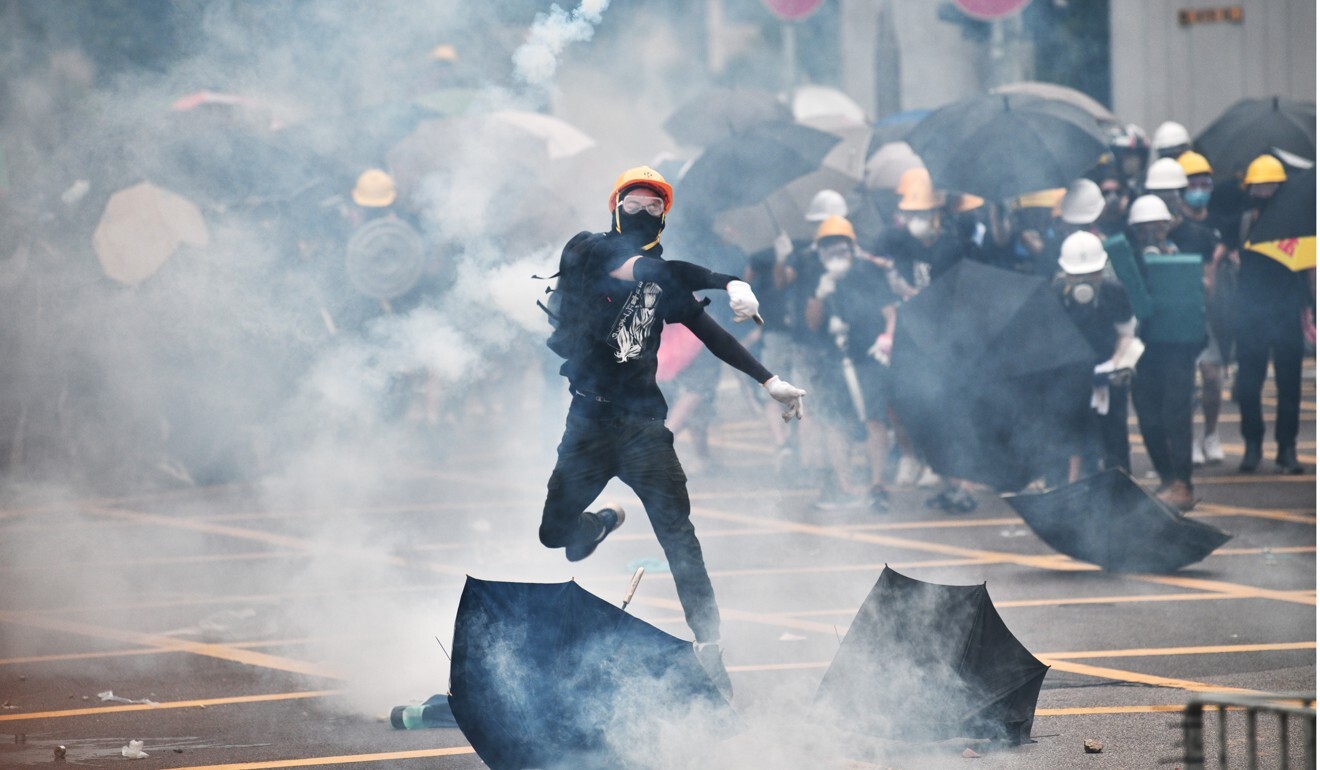
Localists captured about 57 per cent of the total vote, whereas pan-democrats in traditional and radical factions collectively won only 43 per cent, according to a Post analysis. The result was a mirror image of the 2016 elections, when 66 per cent of the vote in the camp went to pan-democrats while localists managed only 35 per cent.
The figures showed that, in the intervening years, the localists had gained the upper hand in the camp instead of being sidelined. This was despite the government’s best efforts with the disqualification of several localists.
Joshua Wong sees dual purpose in allegations barring him from Hong Kong polls
Riding on the victory of the unofficial primary polls, the 15 winners in the resistance bloc vowed to “relentlessly and persistently” resist the communist regime in charge in Beijing and continue to oppose the new security law.
Helping them internationally was former Occupy student leader Nathan Law Kwun-chung, the only activist in the pro-democracy camp who dropped out of the primary and fled to London “out of fears of arrest” under the new security law in July.

Honcques Laus, a local activist who published a book supporting Hong Kong independence last year, became the latest to seek political asylum in Britain, announcing his move on Thursday.
As part of their confrontational plan to block government budgets, student leader-turned-district councillor Lester Shum also said he would not spend effort debating bills or policies, while ex-journalist Gwyneth Ho Kwai-nam saw the legislature as a “battleground” to contend with the Chinese Communist Party.
“We’ve pushed Beijing to light up the fire, but they didn’t burn us yet,” she said. “If we follow the plot of the CCP, Hong Kong will turn into another Macau.” Both were disqualified on Thursday.
Broadening base of support
They were backed by not only young voters but also the middle-aged and educated residents who embraced “resistance”, according to polls by the Centre for Communication and Public Opinion Survey at Chinese University.
The surveys, which tracked the political affiliation of about 1,500 Hongkongers since last June, showed that localists mainly absorbed support from swing or apolitical voters as the proportion of their supporters soared from 6.9 per cent a year ago to 19.8 per cent last month.
In contrast, those in support of the “pro-democracy camp” slightly fell from 32.4 per cent to 30.9 per cent in a year, while the proportion of pro-establishment bloc supporters stood at 10.6 per cent and remained unchanged throughout the year.
The localists’ support from those aged between 30 and 49 rose over a year from 5 per cent to 24.9 per cent. There was also a significant spike among those with tertiary level education.
Last June when 40.9 per cent of those with such a profile said they supported the pro-democracy camp, just 9.3 per cent supported localists. But a year later, pro-democracy and localist supporters respectively took up about 30 per cent of the support in the latest round of polls conducted last month.
We’ve pushed Beijing to light up the fire, but they didn’t burn us yet
“When traditional ways of resistance were seen as not feasible under political suppression, people might resort to support an ideology that is close to their political identity and ethics,” he said.

In other words, the support for the younger firebrands comes from a desire to try a new path, a direction that reflects their own disaffection with the state of governance of the recent years.
What exactly the new path represents is harder to define and has also evolved in response to how the government and Beijing have responded to it. The movement first emerged in the early 2010s, reinforcing a Hong Kong identity as opposed to a Chinese national identity, propelled by the feeling the city was at risk of being overrun by mainlanders.
Hong Kong elections: opposition disqualification slammed internationally
The pushback against perceived encroachment by the centre later gained momentum in 2014 when the “umbrella movement” erupted against Beijing’s decision to pre-screen candidates for the chief executive election.
The localists, some of whom also emerged to protest in northern towns where parallel traders doing brisk cross-border business were causing inconvenience to residents, were driven by a desire to protect what they saw as the Hong Kong way of life and identity.

Among them was former pro-independence activist Edward Leung Tin-kei, who first came up with the slogan “Liberate Hong Kong; revolution of our times” that was adopted as a main chant during last year’s anti-government protests. Leung first used the battle cry in 2016 when he campaigned in a New Territories East by-election and gained 15 per cent of the votes.
Even as they were making inroads, the localists were a disruptive force to the status quo. At least six of them entered Legco in 2016 but proceeded to spoil their oath-taking by insulting China, which became grounds for their disqualification.

In the past four years, local authorities have barred 18 democrats, mainly localists, from running in local elections, according to a report by the rights group Civil Rights Observer.
The future, with or without the moderates
Veteran democrats had insisted they were not as confrontational as the young firebrand localists but conceded the pressure to reflect angry sentiments on the ground over the past year had made them more radical.
In the end, the shift cost the Civic Party’s three lawmakers their eligibility to contest elections and in one fell swoop could mean the party’s elimination from Legco.
It is still unclear if the three disqualified can still serve in an extended term of Legco, with polls postponed by a year.
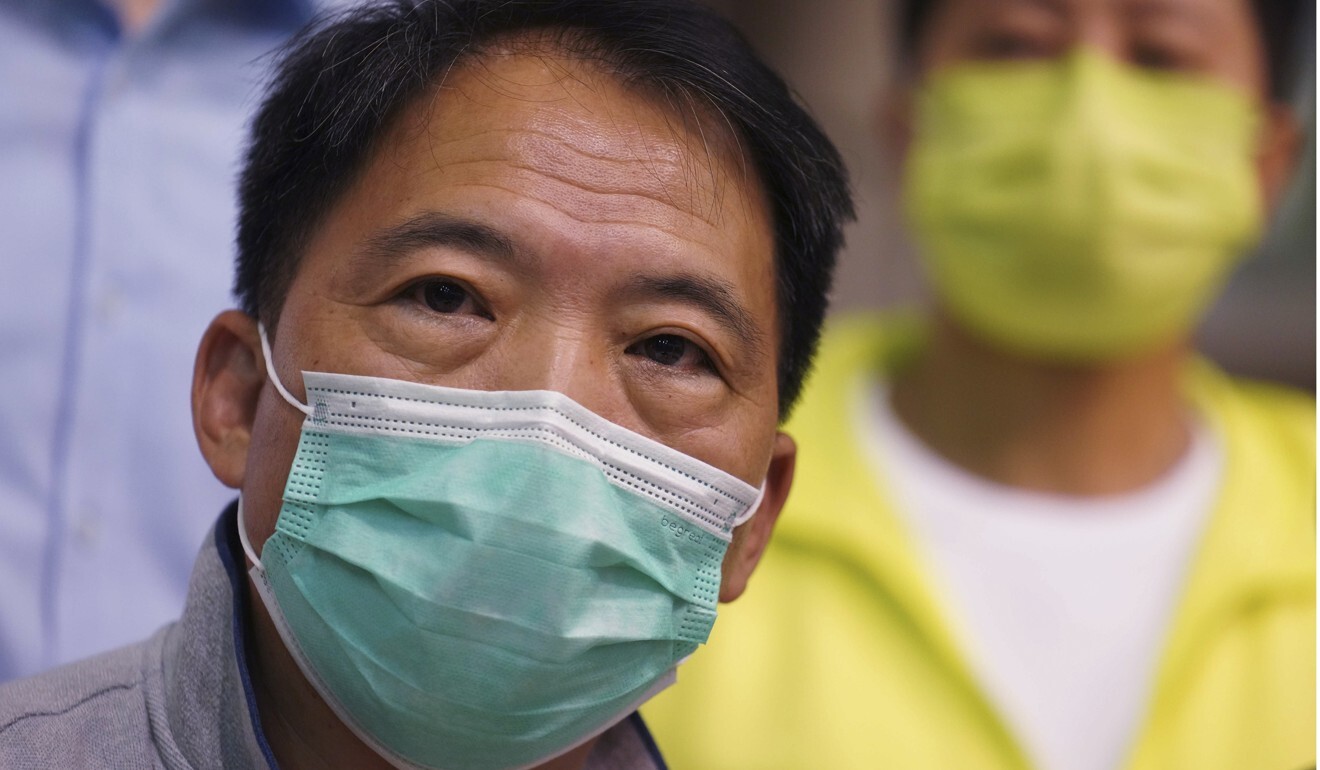
The party’s 39-year-old leader Yeung shook off the uncertainty, saying other opposition members who got into the chamber could still hold the torch of “resistance”.
Other groups in the camp that did not suffer from the bans admitted privately they needed to rethink their strategies in the legislature – whether to follow their allies to embrace more confrontational ways of resistance towards Beijing or distancing themselves from the radicals to press for moderate calls for democracy.
Is Hong Kong’s Studentlocalism a national security threat?
Their chosen paths in picking up the pieces after the disqualifications will reshape the city’s political landscape amid a turbulent year ahead. Will they agree to sign declarations like they did in the primary?
Democratic Party chairman Wu Chi-wai, a serving legislator who had lost ground to localists in the primary, said he needed time to think about his leadership of the party with 25 years of history.
“The Democratic Party will unite with our allies in the camp and Hongkongers to continue to fight against tyranny,” he said.

